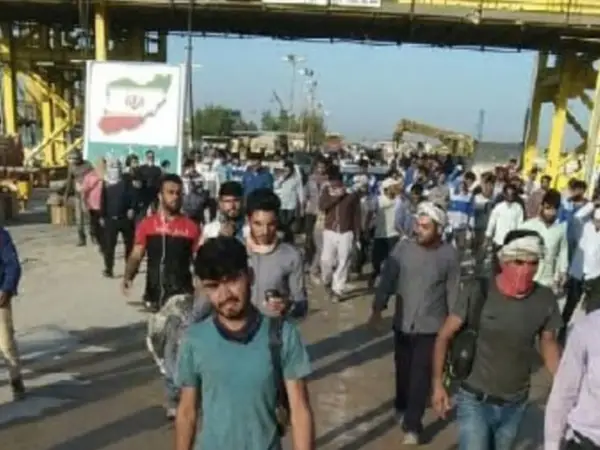A group of 15 trade unions and civil rights groups issued a statement on the eve of International Workers' Day to voice support for the ongoing protests and strikes in Iran.
The Sunday statement issued on the occasion of May Day underlined that the Islamic Republic "neither deserves to survive nor it is capable of surviving.”
Decrying the “bloody crackdown” by the regime during the current wave of protests ignited by the death in custody of Mahsa Amini, the statement said that people from all walks of life including "teachers, workers, filmmakers, artists, and civil and political activists” are against the Islamic Republic.
They noted that the "revolutionary” uprising of the Iranian people is “still alive and moving" forward and no day passes without rallies and acts of protests calling for change.
Referring to the sexual discrimination against women in Iran and the chemical attacks on schoolgirls, they said "Women are deprived of their most basic human rights."
The civil rights groups and labor unions also said the regime "is not able to control rising prices and inflation even for a single week and has plunged a community of 90 million people into poverty and misery in a rich country."
The Council for Organizing Oil Contract-Workers' Protests, which has been one of the main organizers of the current wave of strikes, and workers of the Haft-Tappeh Sugarcane complex – who recently snubbed President Ebrahim Raisi -- were among the signatories of the statement.
The statement came as workers in more than 100 oil, gas, petrochemical and other plants across the country have been staging strikes since April 22, protesting poor working conditions, low wages and rising cost of living. Almost all the striking workers in oil, gas, steel, petrochemicals and other industries, are not officially hired by the country’s oil company or relevant ministries and are working on temporary contracts, risking their only means of livelihood by joining the strikes.
Authorities claim that the strikes are being organized by anti-regime groups, a charge the Islamic Republic often makes to de-legitimize the demands of the workers who earn less than $200 a month. An official at South Pars gas field on the Persian Gulf stated that 4,000 protesting workers will be replaced by new ones.
Earlier in the day, three prominent Iranian labor activists condemned the recent detention of workers calling it "organized brutality" by the regime.
More than 1,600 labor rallies and strikes have been held in the past year across Iran. The Islamic Republic’s security and judiciary apparatus have summoned, arrested and imprisoned dozens of labor activists to stifle dissent.
In their Labor Day statement, the signatories also called for "immediate and unconditional release of all political prisoners,” and also cautioned the authorities against “criminalization of political, trade union, and civil actions."
In recent years, as the Iranian National Oil Company has ceded many operations to quasi-private companies, most of the work is done by temporary contract workers with little pay and no benefits.
The so-called private companies are controlled by military or other state entities, or by well-connected regime insiders who quash labor demands by using government security forces.
